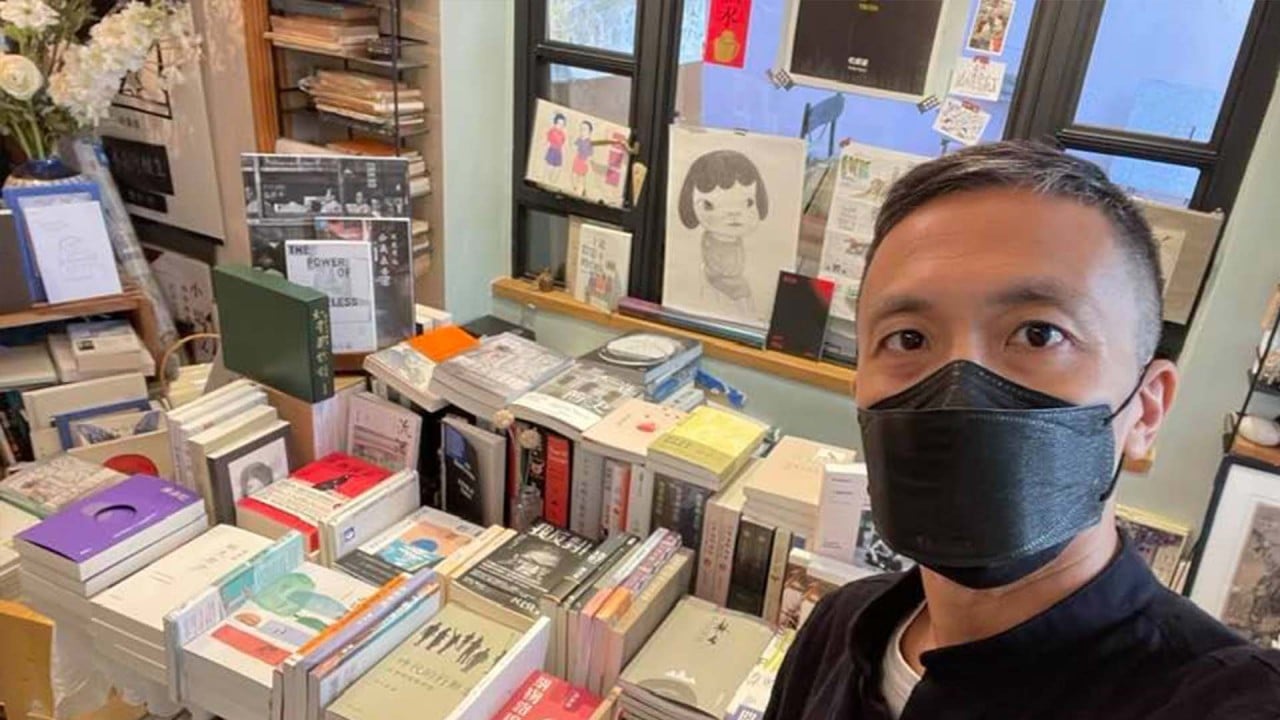
Hong Kong security chief warns UK on ‘double standards’ over new security bill
- Secretary for Security Chris Tang says government will refer to UK’s proposed law, which was introduced to Parliament on May 11, when drafting Article 23 legislation
- In blog post, Tang appeals to ‘foreign politicians’ to look at city’s proposed bill objectively and rationally
Hong Kong will refer to the UK’s new national security bill in drafting its own relevant law, security chief Chris Tang Ping-keung has said, while warning the British government against “double standards” and interference in its criticism of the city’s move to introduce such legislation.
The secretary for security also said on his official blog on Wednesday that when the long-shelved legislation required under Article 23 of the city’s mini-constitution was unveiled he expected “foreign politicians” to look at it objectively and rationally.
“The United States and other Western countries have been deliberately slandering and making false accusations regarding [Hong Kong’s] legislation and implementation of the national security law, and they have ‘demonised’ Article 23 of the Basic Law,” Tang wrote in Chinese.
“But in fact they have also formulated relevant national security legislation and they make amendments to it from time to time.”
In his blog post, titled “Legislation to safeguard national security is common around the world”, Tang cited the new British bill, introduced by the Home Office last week, to explain the need for a local version of the security law.
Tang said the British bill, with which authorities aimed to provide the latest tools to tackle threats in the modern age and hostile acts against the country, included various restrictions on civil rights and covered a wide range of new offences that had an extraterritorial effect.
Citing one of the bill’s intentions to “get ahead of threats”, Tang said Hong Kong’s version of the law must “also be sufficiently forward-looking” in addition to effectively tackling past and existing national security threats.
He listed major proposals in the bill, including creating new offences to tackle state-backed sabotage and foreign interference, reforming espionage laws, enhancing police powers during investigation in emergencies and adding measures restricting the ability of convicted terrorists to receive civil legal aid.
Tang said the British bill was one of the laws the government would refer to when drafting the local one to “best fit the actual situation of Hong Kong”.
“Do not turn a deaf ear to the fact that national security laws of the United States and Western countries do cover a wide range of offences,” he wrote.
“Do not attempt to interfere or sabotage the Hong Kong government’s legislative work with ‘double standards’.”
The Post has contacted the British consulate press office for comment.
Last week, British Foreign Office minister James Cleverly said in a statement to parliament that the arrest of Cardinal Joseph Zen Ze-kiun and three others in Hong Kong under the national security law was “unacceptable”.
He said the law was used to “curtail freedom, punish dissent, and shrink the space for opposition free press and civil society”.
British authorities last year published a consultation on the legislation to modernise rules dating back to World War I. The bill will go through stages in the UK’s 650-seat parliament before becoming law.
Hong Kong’s 90-strong legislature, which was overhauled by Beijing in 2021, consists entirely of pro-establishment lawmakers, except for one, Tik Chi-yuen.
The government tried to introduce Article 23 legislation in 2003, when there were 21 pro-democracy lawmakers in the then 60-member Legislative Council. The bill was shelved after 500,000 people took to the streets in a historic July 1 march the same year.
Giving an update to lawmakers last week about the new bill, Tang said progress was “delayed” due to the city’s fifth wave of Covid-19 infections. He did not offer an updated time frame.
Authorities have repeatedly stressed for years that under the Basic Law, Hong Kong had a constitutional responsibility to enact its own version to cover treason, theft of state secrets or local political groups’ ties with foreign political bodies, which were not covered in the existing law.
But fugitive Nathan Law Kwun-chung dismissed Tang’s comparison of the West’s national security law with the one planned for Hong Kong as a false equivalence.
“The most significant difference is that the UK is a democratic country and the government is held accountable by the people, unlike the Hong Kong government,” the former Hong Kong lawmaker said. “Therefore, the possibility of abusing [the laws] to suppress opposition is much lower. Furthermore, the UK government does not limit what political opinion that individuals can have. In the UK, if you advocate for Scottish independence, that would be completely legitimate as this is the freedom of thought and speech.”
Law, a poster boy of the Hong Kong opposition camp and former head of the now-disbanded Demosisto localist party, is wanted by Hong Kong police on suspicion of breaking the national security law. He fled Hong Kong for London in 2020 ahead of the enactment of the security legislation, which the government maintains applies to people around the world.
Additional reporting by Ng Kang-chung


